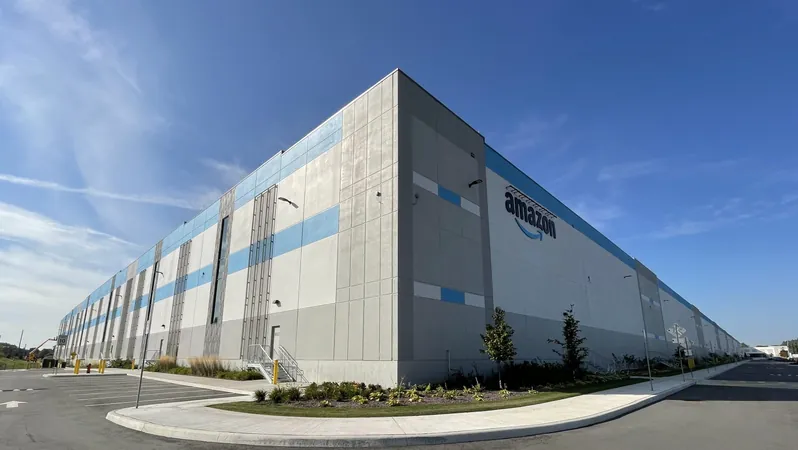
$13.7 Million Blunder: Did Waterloo Region Just Mismanage Amazon's Fulfillment Center Charges?
2024-12-11
Author: Emma
The much-anticipated Amazon Fulfillment Center on Blair Road in Cambridge opened its doors just a month ago, but not without a tangled web of issues that could cost the Region of Waterloo a staggering $13.7 million. Behind the scenes, a bitter two-year dispute between the developers, which include the Broccolini Real Estate Group, and the local government has unfolded, raising questions about accountability and oversight.
In a remarkable twist, the developers had initially benefited from a generous 60 percent discount on development charges, saving over $13.7 million due to a discount framework designed to promote industrial growth in the region. However, this discount came under fire when the Region discovered the true nature of the fulfillment center. Rather than a traditional industrial facility—such as one where goods are manufactured—the Amazon center serves as a logistical hub for online transactions, managing inventory and fulfilling customer orders.
The disagreement heated up when regional officials learned that the Amazon facility may not align with the criteria set forth in their development charge bylaws. Initially, in July 2022, the region had mistakenly applied the discount based on the developers’ characterization of the project as an industrial building. However, the region argues that the developers should have disclosed more accurate information about their intent, as the fulfillment center's operational nature surely differs from conventional manufacturing.
When the Region of Waterloo sought a reassessment in November 2022, it aimed to recover the discounted amount, hoping to raise the total fees owed from the already paid $9 million to a jaw-dropping $22 million. Officials expressed concern that if the developers did not rectify this financial oversight, it would ultimately fall on taxpayers to absorb the loss.
The developers' attorney, Steven Ferri, defended against these charges, stating it would be unreasonable to retroactively increase fees post-payment. He argued that doing so would create chaos within the development charge system and could set a dangerous precedent, leaving developers in perpetual uncertainty.
In a ruling by the Ontario Land Tribunal, the developers emerged victorious, with the tribunal ordering that no additional charges be levied, thus confirming the final fee owed at $9 million. However, the tribunal did not adjudicate on whether the fulfillment center should be classified as an industrial facility, leaving that topic open for future debate—potentially opening a Pandora’s box in regional planning and development guidelines.
News like this raises vital questions: How can municipalities prevent such costly oversights in the future? Will developers be more forthcoming with information regarding their projects? And, what does this mean for the Region of Waterloo's desire to attract additional business investments? The fallout from this case could ripple through the local economy and enforcement of development regulations for years to come.









 Brasil (PT)
Brasil (PT)
 Canada (EN)
Canada (EN)
 Chile (ES)
Chile (ES)
 España (ES)
España (ES)
 France (FR)
France (FR)
 Hong Kong (EN)
Hong Kong (EN)
 Italia (IT)
Italia (IT)
 日本 (JA)
日本 (JA)
 Magyarország (HU)
Magyarország (HU)
 Norge (NO)
Norge (NO)
 Polska (PL)
Polska (PL)
 Schweiz (DE)
Schweiz (DE)
 Singapore (EN)
Singapore (EN)
 Sverige (SV)
Sverige (SV)
 Suomi (FI)
Suomi (FI)
 Türkiye (TR)
Türkiye (TR)